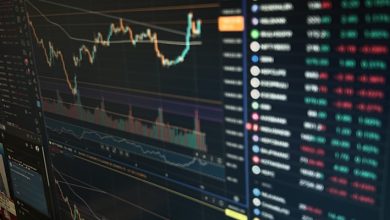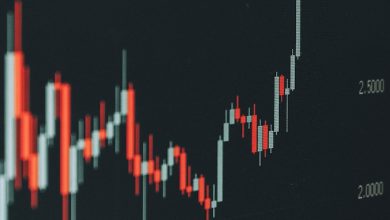The Role of Fear and Greed in Crypto Trading

- Understanding the psychology behind fear and greed in crypto trading
- How fear can drive traders to make irrational decisions in the crypto market
- The impact of greed on risk-taking behavior in cryptocurrency trading
- Strategies for managing fear and greed when trading digital assets
- Exploring the role of fear and greed in market volatility in the crypto space
- Psychological factors influencing investor behavior in the cryptocurrency market
Understanding the psychology behind fear and greed in crypto trading
Fear and greed are two powerful emotions that play a significant role in the world of crypto trading. Understanding the psychology behind these emotions is crucial for traders looking to navigate the volatile crypto markets successfully.
When it comes to fear, it is often driven by the uncertainty and unpredictability of the crypto market. Traders may fear losing their investments due to sudden price drops or market crashes. This fear can lead to panic selling, where traders rush to sell their assets in a bid to minimize their losses.
On the other hand, greed can drive traders to take excessive risks in the hopes of making quick profits. This can lead to impulsive decision-making and a lack of proper risk management. Traders driven by greed may ignore warning signs and continue to invest more than they can afford to lose.
Both fear and greed can cloud traders’ judgment and lead to irrational decision-making. To be successful in crypto trading, it is essential to recognize these emotions and learn how to manage them effectively. Developing a solid trading plan, setting clear goals, and sticking to a disciplined approach can help traders overcome the influence of fear and greed.
How fear can drive traders to make irrational decisions in the crypto market
In the volatile world of cryptocurrency trading, fear can often drive traders to make irrational decisions that can have detrimental effects on their portfolios. When fear takes hold, traders may panic sell their assets at a loss, succumbing to the pressure of the market’s fluctuations. This knee-jerk reaction can lead to missed opportunities for gains and long-term growth.
Additionally, fear can cloud judgment and cause traders to ignore their initial investment strategies and risk management plans. Instead of sticking to their predetermined goals, fear can push traders to make impulsive decisions based on emotions rather than logic. This can result in significant financial losses and missed opportunities for profit.
Furthermore, fear can create a herd mentality among traders, causing them to follow the crowd rather than make informed decisions based on market analysis. This can lead to a cycle of panic selling and buying, perpetuating the volatility of the market and exacerbating the fear-driven behavior of traders.
The impact of greed on risk-taking behavior in cryptocurrency trading
The impact of avarice on risk-taking behavior in cryptocurrency trading is a significant factor that influences traders’ decisions. Greed can drive individuals to take unnecessary risks in the hopes of making quick profits. This behavior can lead to impulsive trading, disregarding proper risk management strategies, and ultimately resulting in substantial losses.
When traders are driven by greed, they may ignore warning signs and indicators that suggest a potential downturn in the market. Instead, they focus solely on maximizing their gains, even if it means exposing themselves to higher levels of risk. This mentality can create a vicious cycle where traders chase higher profits without considering the potential consequences.
Furthermore, the fear of missing out on lucrative opportunities can exacerbate greedy behavior in cryptocurrency trading. Traders may feel pressured to take more risks to keep up with their peers or to avoid feeling left out of potential gains. This fear-driven greed can cloud judgment and lead to irrational decision-making, further increasing the likelihood of losses.
It is essential for traders to recognize the impact of greed on their risk-taking behavior and take steps to mitigate its influence. By practicing discipline, following a well-thought-out trading plan, and staying informed about market trends, traders can reduce the negative effects of greed on their trading activities. Ultimately, striking a balance between risk and reward is crucial for long-term success in the volatile world of cryptocurrency trading.
Strategies for managing fear and greed when trading digital assets
When trading digital assets, it is crucial to have strategies in place to manage fear and greed effectively. These emotions can often cloud judgment and lead to impulsive decisions that may result in financial losses. By implementing the following tips, traders can navigate the volatile crypto market with more confidence:
- Set Clear Goals: Establishing clear and realistic goals for each trade can help mitigate the influence of fear and greed. Having a predetermined exit strategy based on profit targets and risk tolerance can prevent emotional decision-making.
- Use Stop-Loss Orders: Utilizing stop-loss orders can help limit potential losses by automatically selling a digital asset if it reaches a certain price. This can protect traders from letting fear take over and causing them to hold onto a depreciating asset.
- Diversify Your Portfolio: Spreading investments across different digital assets can reduce the impact of fear and greed on individual trades. Diversification can help balance risk and reward, minimizing the potential for emotional reactions to market fluctuations.
- Practice Patience: Avoid making impulsive decisions based on short-term price movements driven by fear or greed. Taking a long-term perspective and staying disciplined in your trading approach can help avoid emotional pitfalls.
- Stay Informed: Keep up-to-date with market news, trends, and analysis to make informed decisions based on data rather than emotions. Understanding the factors influencing digital asset prices can help reduce the impact of fear and greed on trading strategies.
By implementing these strategies, traders can better manage the emotions of fear and greed when trading digital assets. This can lead to more consistent and rational decision-making, ultimately improving the overall success of their trading endeavors in the crypto market.
Exploring the role of fear and greed in market volatility in the crypto space
When it comes to market volatility in the crypto space, fear and greed play a significant role in driving price fluctuations. These two emotions are often the primary drivers behind the buying and selling decisions of traders and investors. Understanding how fear and greed influence market movements can help individuals navigate the often unpredictable nature of the cryptocurrency market.
Fear can cause investors to panic sell their assets at the first sign of trouble, leading to sharp price drops. This fear of missing out on potential profits can also lead investors to make impulsive decisions that may not be in their best interest. On the other hand, greed can drive investors to hold onto their assets for too long, hoping for even greater returns. This can result in inflated prices that are not sustainable in the long run.
It is essential for traders in the crypto space to be aware of how fear and greed can impact their decision-making process. By staying informed and maintaining a level head, investors can better navigate market volatility and make more informed trading decisions. Developing a solid risk management strategy and sticking to it can help mitigate the influence of fear and greed on trading activities.
Psychological factors influencing investor behavior in the cryptocurrency market
When it comes to the cryptocurrency market, investor behavior is heavily influenced by psychological factors such as fear and greed. These emotions play a significant role in shaping how investors make decisions, affecting the prices of various cryptocurrencies.
Fear can lead investors to panic sell during periods of market volatility, causing prices to drop rapidly. On the other hand, greed can drive investors to buy into a cryptocurrency FOMO (fear of missing out), causing prices to skyrocket artificially. Understanding how these emotions impact investor behavior is crucial for navigating the unpredictable world of crypto trading.
One way fear manifests in the cryptocurrency market is through the fear of losing money. Investors may be quick to sell their assets at the first sign of a downtrend to avoid further losses, even if it means missing out on potential gains in the long run. This fear-driven selling can create a self-fulfilling prophecy, causing prices to plummet even further.
Greed, on the other hand, can lead investors to take excessive risks in pursuit of quick profits. This can result in market bubbles where prices become detached from the underlying value of a cryptocurrency. When these bubbles inevitably burst, investors who bought in at the peak can experience significant losses, reinforcing the cycle of fear and greed in the market.



